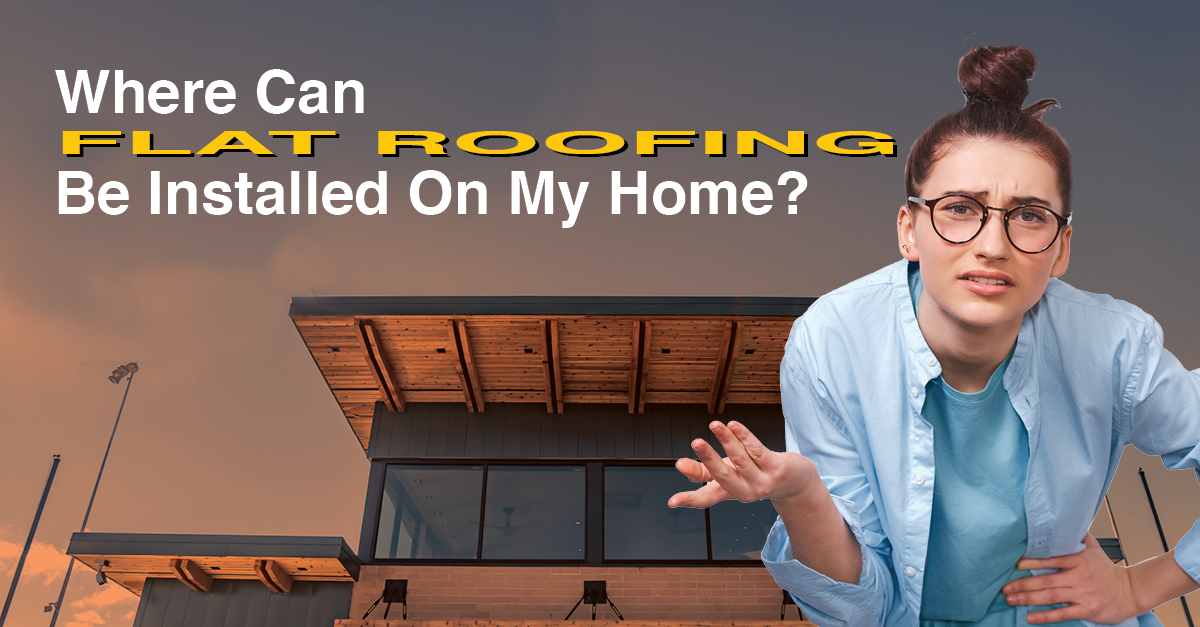
Flat roofing is often associated with commercial and industrial buildings. But times have changed, and flat roofing systems have revolutionized the residential roofing industry. As a matter of fact, flat roofs are installed anywhere, including the house itself, garages, porches, sheds, and more.
The Best Materials for Residential Flat Roofs
There are multiple options when it comes to residential flat roofs. As a homeowner, you need to understand the performance of each roofing material and see if it aligns with your priorities.
PVC (Polyvinyl chloride)
PVC is a sturdy thermoplastic membrane which can be reinforced with fiberglass or polyester to create a strong, durable flat roofing material. It is highly resistant to fire and UV rays and is known to be waterproof. PVC can be a more expensive material, however.
TPO
Thermoplastic polyolefin (TPO) can reflect UV rays and resist flames. With proper installation, this flat roofing material can effectively prevent moisture penetration, making it highly durable. It’s also lightweight and easy to install.
Torchdown/Modified Bitumen
This single-ply material is extremely durable and rugged. Modified Bitumen is a bit more complicated to install since it is rolled on to the roof’s surface using a blowtorch to secure it in place. On the flipside, torchdown is weather-resistant and easy to repair. However, you’ll need regular maintenance to improve its lifespan.
Built-up Roofing
Technically, a built-up roof (BUR) is made of tar and gravel. Today, you’ll find built-up roofs using more advanced materials such as fiberglass membranes as opposed to tar paper. This roofing material is highly durable and long-lasting. While BUR is waterproof and extremely strong, tar can shrink over time when exposed to external elements like sunshine. Its heavyweight also makes it hard to install.
Poly Iso insulation
Polyiso or Polyisocyanurate is a rigid insulation board manufactured from closed cell foam. It’s available in different sized boards with a range of thicknesses. This is installed under roofing membranes for insulation purposes.
Advantages of a Residential Flat Roof
Flat roofing may visually appear to be entirely flat, but this isn’t the case. Flat roofs have a low pitch to drain water. Here are a few benefits of flat roofs for residential properties.
- Thanks to its compact design, a flat roof can fit smaller structures. For example, a flat roof can accommodate the trickiest designs when extending your house. It is also ideal for porches, dormers, garages, and many more.
- Flat roofs are generally affordable since the materials and labor often cost less than high-pitched roofs.
- Installing flat roofs is faster and easier since most of the materials are generally lightweight.
- Easy maintenance, repair, and replacement since its less risky to access and walk on flat roofs.
- Durable and resistant to leaks and extreme temperatures.
Are you considering a flat roof for your residential home? Keep in mind every roofing system should be installed by an experienced local roofing contractor to guarantee longevity. At Guardian Homes, we’ve been installing, repairing, maintaining, and replacing flat roofs in the greater Puget Sound Area for years. Contact us today to get a free estimate for all your roofing needs!
